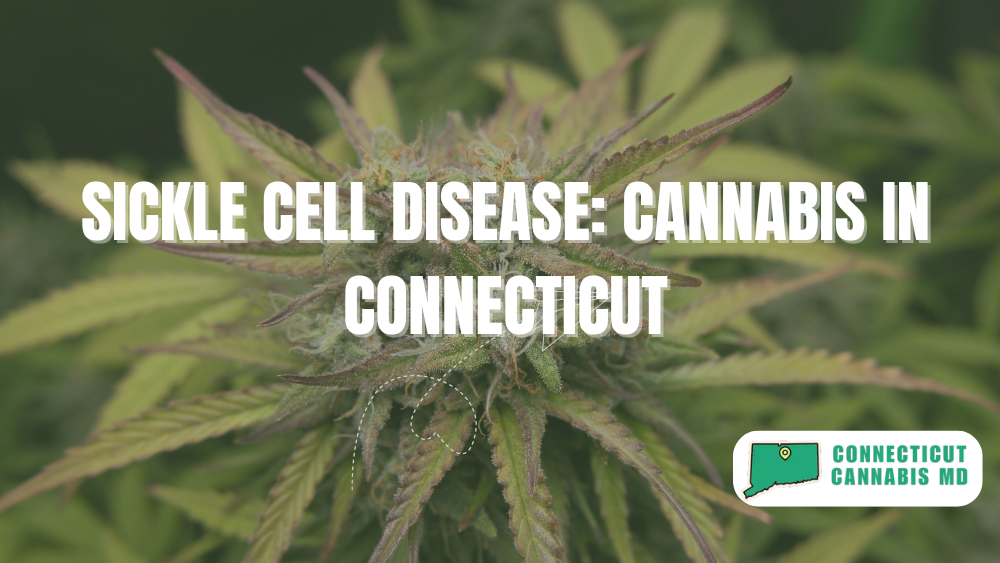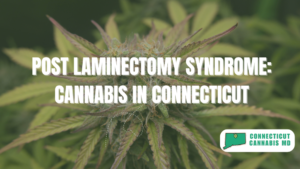Psoriasis is a chronic autoimmune condition that causes skin cells to multiply rapidly, resulting in red, scaly patches on the skin. The condition can be painful, itchy, and emotionally distressing for those who suffer from it.
Psoriatic arthritis, a related condition, can cause joint pain and swelling in addition to skin symptoms. While there is no cure for psoriasis, treatments aim to reduce inflammation and slow down the overproduction of skin cells.
Medical cannabis has shown the potential to provide relief from psoriasis symptoms thanks to its anti-inflammatory and immunosuppressive properties. In Connecticut, patients with psoriasis may qualify for the medical marijuana program, allowing them to explore cannabis as an alternative treatment.
This article will discuss how cannabis can help manage psoriasis, how to access medical marijuana in Connecticut, and the role of telemedicine.
Understanding Psoriasis
Causes and Symptoms of Psoriasis
Psoriasis is caused by an overactive immune system that triggers the rapid growth of skin cells. Normally, skin cells take about a month to regenerate, but in psoriasis patients, this process happens within days, leading to a buildup of cells on the surface of the skin. Common symptoms of psoriasis include:
- Red patches of skin covered with thick, silvery scales
- Itching and burning sensations
- Cracked skin that may bleed
- Stiff, swollen joints (in the case of psoriatic arthritis)
The severity of psoriasis can vary from mild to severe, with flare-ups often triggered by stress, infections, or changes in weather.
Traditional Treatments for Psoriasis
Traditional treatments for psoriasis include topical creams, phototherapy, and systemic medications such as biologics. While these treatments can help manage symptoms, they often come with side effects, and their effectiveness can vary from patient to patient.
For this reason, many patients are turning to alternative therapies like medical cannabis to help reduce inflammation and improve skin health.
How Cannabis Can Help with Psoriasis
Anti-Inflammatory and Immunosuppressive Properties
Cannabis contains cannabinoids like THC and CBD, which interact with the body’s endocannabinoid system to regulate immune responses and reduce inflammation. This is particularly beneficial for psoriasis patients, as the condition is caused by an overactive immune system.
By calming the immune response, cannabis can help reduce the inflammation that leads to the rapid production of skin cells.
CBD, in particular, has been studied for its anti-inflammatory properties, and it may help reduce the redness, itching, and swelling associated with psoriasis. In addition, THC has immunosuppressive effects that can help slow down the overactive immune response, providing relief from flare-ups.
Pain Relief and Improved Skin Health
Psoriasis can be painful, especially when it leads to cracked skin or joint pain (in the case of psoriatic arthritis). Cannabis can help alleviate pain by interacting with cannabinoid receptors in the nervous system. By reducing pain signals, cannabis can help patients feel more comfortable and improve their quality of life.
Additionally, some studies suggest that cannabis topicals, such as creams or balms, may help improve skin health by reducing inflammation and moisturizing the skin.
Improving Sleep and Mental Health
The physical and emotional toll of living with psoriasis can lead to sleep disturbances and mental health challenges such as anxiety and depression.
Cannabis, particularly strains high in CBD, can promote relaxation and improve sleep quality. By helping patients manage stress and anxiety, cannabis may reduce the frequency and severity of psoriasis flare-ups.
Accessing Medical Marijuana for Psoriasis in Connecticut
Qualifying for a Medical Marijuana Card
In Connecticut, psoriasis is a recognized qualifying condition for medical marijuana. Patients diagnosed with psoriasis or psoriatic arthritis can apply for a medical marijuana card to access cannabis products that may help manage their symptoms.
To qualify, patients must receive certification from a Connecticut-licensed healthcare provider.
The Application Process for a Medical Marijuana Card
After obtaining certification from a healthcare provider, patients can submit their application for a medical marijuana card through the Connecticut Department of Consumer Protection. The application requires proof of residency, medical certification, and a registration fee.
Once approved, patients will receive their medical marijuana card, allowing them to purchase cannabis products from licensed dispensaries.
The Role of Telemedicine for Psoriasis Patients
Telemedicine for Easy Access
For psoriasis patients who may struggle with flare-ups or mobility issues, telemedicine offers a convenient way to access healthcare without the need for in-person visits.
Telemedicine allows patients to consult with certified healthcare providers from the comfort of their homes and receive their medical marijuana recommendation through an online platform.
Affordable Telemedicine Consultations
In Connecticut, telemedicine consultations for medical marijuana recommendations cost $179 for new patients, with yearly renewals available for $149. This affordable option ensures that psoriasis patients can access the care they need without the added burden of traveling to appointments.
Conclusion
Medical cannabis offers a promising option for patients with psoriasis and psoriatic arthritis who are seeking relief from chronic inflammation, pain, and skin irritation. By interacting with the body’s endocannabinoid system, cannabis can help reduce the immune response that triggers psoriasis flare-ups and improve overall skin health.
In Connecticut, patients can access medical marijuana through the state’s medical marijuana program, with telemedicine providing an easy and convenient way to obtain certification.
Call to Action (CTA):
“Ready to explore how medical marijuana can help manage your psoriasis? Book an online consultation with a certified doctor today and start your application for a Connecticut Medical Marijuana Card.
FAQs
How does cannabis help with psoriasis?
Cannabis helps reduce inflammation and modulate the immune response, which can alleviate the symptoms of psoriasis, such as red patches, itching, and pain.
Is psoriasis a qualifying condition for medical marijuana in Connecticut?
Yes, psoriasis is a recognized qualifying condition for medical marijuana in Connecticut.
How much does a medical marijuana recommendation via telemedicine cost in Connecticut?
Telemedicine consultations cost $179 for new patients and $149 for yearly renewals.
How do I apply for a medical marijuana card for psoriasis in Connecticut?
You can apply online after receiving certification from a licensed healthcare provider through the Connecticut Department of Consumer Protection.
Can I use telemedicine to get a medical marijuana recommendation for psoriasis?
Yes, telemedicine allows you to consult with a certified doctor online to obtain a medical marijuana recommendation for psoriasis.












